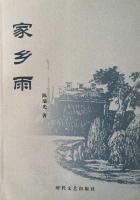What I said soon reached every Negro minister in the country, I think, and the letters of condemnation which I received from them were not few. I think that for a year after the publication of this article every association and every conference or religious body of any kind, of my race, that met, did not fail before adjourning to pass a resolution condemning me, or calling upon me to retract or modify what I had said. Many of these organizations went so far in their resolutions as to advise parents to cease sending their children to Tuskegee. One association even appointed a "missionary" whose duty it was to warn the people against sending their children to Tuskegee. This missionary had a son in the school, and I noticed that, whatever the "missionary" might have said or done with regard to others, he was careful not to take his son away from the institution. Many of the coloured papers, especially those that were the organs of religious bodies, joined in the general chorus of condemnation or demands for retraction.
During the whole time of the excitement, and through all the criticism, I did not utter a word of explanation of retraction. I knew that I was right, and that time and the sober second thought of the people would vindicate me. It was not long before the bishops and other church leaders began to make careful investigation of the conditions of the ministry, and they found out that I was right. In fact, the oldest and most influential bishop in one branch of the Methodist Church said that my words were far too mild. Very soon public sentiment began ****** itself felt, in demanding a purifying of the ministry. While this is not yet complete by any means, I think I may say, without egotism, and I have been told by many of our most influential ministers, that my words had much to do with starting a demand for the placing of a higher type of men in the pulpit. I have had the satisfaction of having many who once condemned me thank me heartily for my frank words.
The change of the attitude of the Negro ministry, so far as regards myself, is so complete that at the present time I have no warmer friends among any class than I have among the clergymen.
The improvement in the character and life of the Negro ministers is one of the most gratifying evidences of the progress of the race. My experience with them, as well as other events in my life, convince me that the thing to do, when one feels sure that he has said or done the right thing, and is condemned, is to stand still and keep quiet. If he is right, time will show it.
In the midst of the discussion which was going on concerning my Atlanta speech, I received the letter which I give below, from Dr. Gilman, the President of Johns Hopkins University, who had been made chairman of the judges of award in connection with the Atlanta Exposition:--
Johns Hopkins University, Baltimore, President's Office, September 30, 1895.
Dear Mr. Washington: Would it be agreeable to you to be one of the Judges of Award in the Department of Education at Atlanta? If so, I shall be glad to place your name upon the list. A line by telegraph will be welcomed.
Yours very truly, D.C. Gilman I think I was even more surprised to receive this invitation than I had been to receive the invitation to speak at the opening of the Exposition. It was to be a part of my duty, as one of the jurors, to pass not only upon the exhibits of the coloured schools, but also upon those of the white schools. I accepted the position, and spent a month in Atlanta in performance of the duties which it entailed. The board of jurors was a large one, containing in all of sixty members. It was about equally divided between Southern white people and Northern white people. Among them were college presidents, leading scientists and men of letters, and specialists in many subjects. When the group of jurors to which I was assigned met for organization, Mr. Thomas Nelson Page, who was one of the number, moved that I be made secretary of that division, and the motion was unanimously adopted. Nearly half of our division were Southern people. In performing my duties in the inspection of the exhibits of white schools I was in every case treated with respect, and at the close of our labours I parted from my associates with regret.
I am often asked to express myself more freely than I do upon the political condition and the political future of my race. These recollections of my experience in Atlanta give me the opportunity to do so briefly. My own belief is, although I have never before said so in so many words, that the time will come when the Negro in the South will be accorded all the political rights which his ability, character, and material possessions entitle him to. I think, though, that the opportunity to freely exercise such political rights will not come in any large degree through outside or artificial forcing, but will be accorded to the Negro by the Southern white people themselves, and that they will protect him in the exercise of those rights. Just as soon as the South gets over the old feeling that it is being forced by "foreigners," or "aliens," to do something which it does not want to do, I believe that the change in the direction that I have indicated is going to begin. In fact, there are indications that it is already beginning in a slight degree.
Let me illustrate my meaning. Suppose that some months before the opening of the Atlanta Exposition there had been a general demand from the press and public platform outside the South that a Negro be given a place on the opening programme, and that a Negro be placed upon the board of jurors of award. Would any such recognition of the race have taken place? I do not think so. The Atlanta officials went as far as they did because they felt it to be a pleasure, as well as a duty, to reward what they considered merit in the Negro race. Say what we will, there is something in human nature which we cannot blot out, which makes one man, in the end, recognize and reward merit in another, regardless of colour or race.















